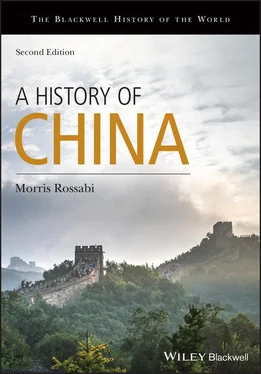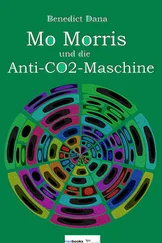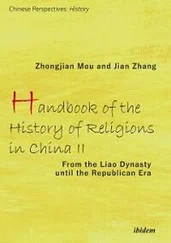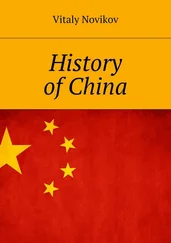The economic and political changes of the Warring States period reverberated in the new philosophies of the time. The seemingly greater opportunities for social mobility were mirrored in opposition to the use of social position as the means of selecting officials. Most of the philosophies emphasized merit rather than birth as the main criterion for recruitment as well as for social advancement. Confucianism, Mohism, and Legalism, three of the principal philosophies that developed in the Warring States period, paid the greatest attention to the individual’s qualifications in assessing his suitability for office. They also judged his moral worth on the basis of his own actions and values, not the circumstances of his birth. According to their thinking, because family status and personal relations would be insufficient to guarantee a prominent position at court, the ruler and his ministers would have a more contractual compact rather than a hereditary, personalized arrangement. Similarly, a number of the leading philosophers, perhaps reacting to some of the inhumane, even malevolent heads of state in the Warring States period, wrote that the ruler himself ought to be subject to the same kind of scrutiny.
The Warring States period thus witnessed the development of the conditions necessary for a unified China and the rise of a new governing class based, in theory, on merit. The hereditary principle for ministers and officials was overturned, and new men rose to positions of authority because of their capabilities. Opportunities increased for them because of the warfare that punctuated the era and that resulted in the deaths of many in the nobility. Since the new men had military, diplomatic, and administrative skills essential for the states seeking to survive these tumultuous times, the various rulers courted them. Simultaneously, ambitious men, who were not part of the nobility, began to supersede the “feudal” lords as landowners, and merchants capitalized on the demand for products that was precipitated by increased contact between the states; these merchants reaped sizable fortunes, creating still another wealthy, non-noble class. The philosophies espoused during this time undermined the rigid hierarchical structure that favored the old elite and instead supported the aspirations of the newly risen commoners and prized competence above birth in the recruitment of officials and rulers.
Daoism, the first of the major Eastern Zhou schools of thought to develop, poses a paradox to potential interpreters. Like other mystical philosophies, it disdains easy transmission of its principles. For Daoists, the spoken or written word often distorts the fundamental message. Even the most sympathetic of interpreters who seek to describe or define the dao inevitably alter it. Explaining its basic features is thus no easy task. A straightforward starting point is the dao , which simply meant the “road” or the “path.” Yet dao eventually assumed the connotation of a manner of conduct entailing an affinity for nature. Chaotic conditions may have prompted Daoists to turn away from society. They took refuge in nature and perceived society, government, and civilization as artificial and hazardous. Advocating withdrawal from active involvement with society, they proposed detachment as an important value. Unlike Confucianism, with its emphasis on the family, the group, and society at large, Daoists appealed to Chinese individualism. If the individual followed a course that blended with the natural order, he or she would be at peace and would move in the direction of the dao . Yet, for the Daoists, the dao could not be truly defined because such attempts entailed the delineation of distinctions, which would distort the dao , symbolized by wholeness rather than artificial separation.
The Daodejing offered the first statement of Daoist beliefs. Lao Zi, its reputed author, remains a shadowy figure. Although some scholars have credited him with writing the text, others over the centuries have questioned his very existence. Some have asserted that the text is a compilation of the works of several authors that was finally completed in the fourth or third centuries BCE. Some have accepted the traditional sixth–fifth centuries BCE dating of the work but have denied the ascription of authorship to the mysterious Lao Zi. The numerous myths that have gathered around the life and career of Lao Zi have compounded these difficulties. One that was the focus of later disputes between Buddhists and Daoists concerned his alleged departure to the so-called Western Regions. Having transmitted the Daoist message as clearly as he could to his own people, he is said to have traveled to India, where he expounded the doctrine to the historical Buddha, whose ideas were simply an adaptation and ultimately a degradation of Daoism.
The Daodejing itself is an elliptical, cryptic text composed of eighty-one short poetical passages. As befits a system of thought that questions the ability of words to convey Daoist reality, these terse observations are often murky and difficult to translate and interpret. Having proposed that the dao (Way) is the vast primary force in the universe, the text then defines the de in a variety of ways, including as the power derived from the dao . It identifies the dao with nature and relates it to the development and deterioration of material phenomena. The constant changes in the world simply reflect the manifestations of the dao . Study of texts or use of the senses will not necessarily lead to greater understanding of the dao . Only by looking inward will an individual be in touch with and understand the dao . Neither science nor reason will result in true knowledge. Like other mystical texts, the Daodejing envisioned a sudden illumination as a means of gaining insight into one’s kinship with the universe.
The dao did not necessarily translate into tangible benefits, nor could morality or good behavior guarantee rewards. The later Confucian emphasis on virtue and on proper, occasionally deferential conduct toward others struck Daoists as irrelevant. The dao would not intervene in human affairs on behalf of those who had received illumination. It bore no relation to human standards of morality. Daoism offered solace to the individual in an era of chaos and social fragmentation. Liberated from obligations to society and from expectations of specific ethical behavior, the individual was free to cultivate himself and to achieve a union with the dao . When he became enlightened, he would rise above the tribulations of his times and would experience inner peace and harmony.
Daoism, as described in the Daodejing , also proffered what it believed to be beneficial advice to rulers, which included a response to the turbulence of the Warring States period. It asserted that the best rulers practiced a policy of nonaction ( wu-wei ). If they wanted to cope with banditry, plundering, and rebellion, the terrible plagues of this unsettled time, they would simply avoid doing anything. The more laws or restrictions that the ruler imposed, the greater the deterioration he would face. Inaction and initially yielding to others would eventually lead to success. Through inaction, compassion, and avoidance of distinctions between good and evil, the ruler often reflected the people’s views and at other times persuaded others by his example. Compulsion and harsh laws would not be effective in achieving order and stability.
Though Lao Zi perceived nonaction as a sound political philosophy for the rulers and for the entire population, his impact on politics was negligible. Centralization and unification were essential during the Warring States period, and the rulers of the various “feudal” states were not persuaded that Daoism provided a proper vehicle for their political needs. Instead Daoism, with its affinity for nature and its espousal of a harmonious and contemplative life, appealed principally to those artists and intellectuals who sought refuge from difficult and dangerous times.
Читать дальше












